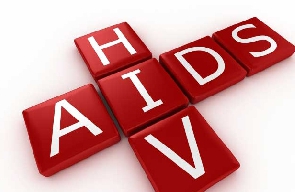Abstract
HIV/AIDS remains a critical public health issue in Ghana, with recent data indicating a troubling increase in the prevalence of the disease. As of 2023, the national adult HIV prevalence stands at approximately 1.53%, with around 334,095 people living with HIV.
This includes a significant number of young adults, highlighting the urgent need for targeted interventions. The disease is spreading rapidly, particularly among young women and men, driven by factors such as unprotected sex, including hookups and one-night stands.
This article discusses the increasing prevalence of HIV/AIDS, the need for comprehensive education, mandatory testing for early detection, and addressing risky behaviours. It also emphasizes the role of clinics and hospitals, community involvement, and leveraging technology for awareness. The rise of HIV/AIDS in Ghana is a public health emergency that demands immediate attention and coordinated efforts from all stakeholders.
Introduction
HIV/AIDS remains a critical public health issue in Ghana, with recent data indicating a troubling increase in the prevalence of the disease. As of 2023, the national adult HIV prevalence stands at approximately 1.53%, with around 334,095 people living with HIV (Ghana AIDS Commission, 2023). This includes a significant number of young adults, highlighting the urgent need for targeted interventions.
Keywords: HIV/AIDS, Ghana, public health, prevalence, education, family planning, unprotected sex, mandatory testing, risky behaviours, clinics, hospitals, prevention, awareness, community involvement, technology.
Increasing Prevalence and Affected Areas
The prevalence of HIV/AIDS is not uniform across the country. Regions such as Greater Accra, Ashanti, and Eastern regions report higher rates of infection (99Science, 2023). The disease is spreading rapidly, particularly among young women and men, driven by factors such as unprotected sex, including hookups and one-night stands.
The Need for Comprehensive Education
Despite the rising numbers, there is a concerning lack of awareness and education about HIV/AIDS. Many young people engage in risky behaviours without understanding the consequences. Parents often focus on family planning to prevent pregnancies in their daughters but overlook the risk of HIV/AIDS and other sexually transmitted diseases (STDs) (UNAIDS, 2019). This issue is prevalent among nursing and teacher training students, hairdressers, seamstresses, university students, and increasingly, high school students who engage in family planning to have unprotected sex.
Mandatory Testing for Early Detection
To combat the spread of HIV/AIDS, it is imperative that the Ghana Health Service implements mandatory HIV testing every six months. Early detection can significantly improve treatment outcomes and reduce transmission rates (UNAIDS, 2019). Regular testing should be made accessible and encouraged for all citizens.
Addressing Risky Behaviors
Unnecessary tattoos, hookups, and one-night stands contribute to the spread of HIV/AIDS. Additionally, the practice of having multiple sexual partners without protection exacerbates the problem. There is an urgent need to address these behaviours through public education and stricter regulations (99Science, 2023).
Role of Clinics and Hospitals
Various clinics and hospitals that provide family planning services to young high school students and students in training colleges should be engaged by the Ghana Health Service. These institutions need to be part of the solution by ensuring that their family planning services also emphasize the importance of preventing HIV/AIDS and other STDs. This comprehensive approach is crucial to curbing the spread of the disease.
Community Involvement and Support
Community involvement is essential in addressing the HIV/AIDS crisis. Local leaders, religious organizations, and community groups should be mobilized to spread awareness and support prevention efforts. Peer education programs can be particularly effective in reaching young people and encouraging safe practices.
Leveraging Technology for Awareness
Utilizing technology and social media platforms can enhance awareness campaigns. Engaging content, such as videos, infographics, and interactive sessions, can reach a broader audience and educate them about the risks and prevention of HIV/AIDS.
Conclusion
The rise of HIV/AIDS in Ghana is a public health emergency that demands immediate attention. By increasing education, promoting safe practices, and ensuring regular testing, we can work towards controlling the spread of this devastating disease. It is time for all stakeholders to come together and take decisive action to protect the health and future of our nation.
References
1. Ghana AIDS Commission, 2023. HIV/AIDS Statistics in Ghana. [online] Available at:
2. 99Science, 2023. HIV/AIDS Prevalence in Ghana. [online] Available at:
3. UNAIDS, 2019. Country progress report - Ghana. [online] Available at:
Opinions of Saturday, 19 October 2024
Columnist: Kingsford Ansah



















